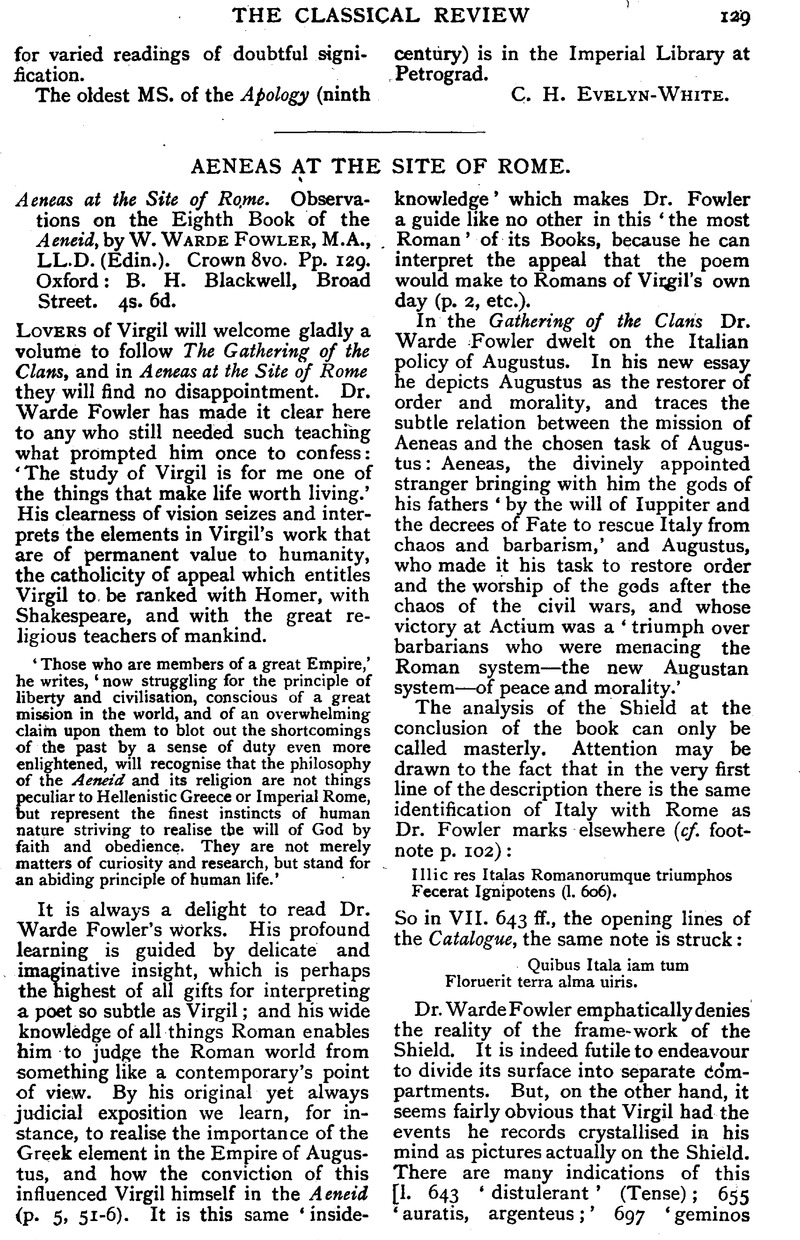No CrossRef data available.
Article contents
Aeneas at the Site of Rome - Aeneas at the Site of Rome. Observations on the Eighth Book of the Aeneid, by W. Warde Fowlek, M.A., LL.D. (Edin.). Crown 8vo. Pp. 129. Oxford: B. H. Blackwell, Broad Street. 4s. 6d.
Published online by Cambridge University Press: 27 October 2009
Abstract

- Type
- Reviews
- Information
- Copyright
- Copyright © The Classical Association 1918
References
page 130 note 1 Cf. however I. 475 ff., where there is the same graphic change of tense as here from the pictorial imperfect to the historic present.
page 130 note 2 It is perhaps not irrelevant here to add a note that has occurred to me in connexion with an observation of Dr. Fowler's in the Gathering of the Clans, and Professor Conway's comment upon it in the Classical Review (February, 1917). In VII. 11. 699–705 Dr. Fowler would excise the second simile, supposing that it was written by Virgil merely as an alternative, and was put into the text by Varius and Tucca. Professor Conway, however, showed that the second simile was not a mere alternative, but compares the appearance of the host to that of a flock of birds, while the first compares them in point of noise. Now Homer introduces his Catalogue (II. 455–73) with five similes one after the other—one of appearance, one of noise, two of number, one of the marshalling of the host. Did not Virgil here set the two similes side by side on purpose in imitation of Homer? In both cases the similes illustrate the Catalogue of Warriors, and one of those used by Virgil is actually similar in substance to one of those of Homer.
page 131 note 1 Professor Conway, whom I consulted on this point, suggests that since Laomedon was a builder of Troy as well as a breaker of contracts, it is perhaps not fanciful to see in the epithet in both VIII. 18 and VII. 105 an appropriate reference to the task which they had come to Latium to carry out—to found a new city.




